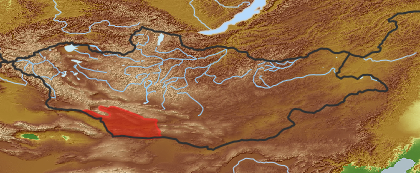| Class: | angiosperms |
| Order: | Brassicales |
| Family: | Capparaceae |
| Name acc. to: | APGII |
| open map in a new window |  |
| genus: 1 |
| species: 1 |
| Habit (i)general appearance of a plant | |
| Parasite status: (i)Is the plant a half- or full parasite? | no parasite/saprophyte (i)Plant fully autonomous, leaves with chlorophyll
example: Most plants, Ranunculus
|
| Leaf (i)expanded, usually photosynthetic organ of a plant (including phylloclades) | |
| Leaf development: (i)Structure and development of leaves. | flattened blade (i)Cross-section of lamina flat, plain
common leaf (i)Green, often divided in blade and petiole
example: Cotoneaster
|
| Leaf veination: (i)Arrangement of the main veins of a leaf. | pinnate (i)One main vein, several side veins, sometimes inconspicuous
example: Cicerbita   
|
| Root / shoot below ground (i)plant part below ground (in most cases), including below ground shoots, without leaves | |
| Root type: (i)Organisation of the roots. | allorhizous (i)Plant with a conspicuous tap root, one larger tap root with side roots
example: Dicotyledonae  inherited by order Brassicales: allorhizous inherited by order Brassicales: allorhizous
|